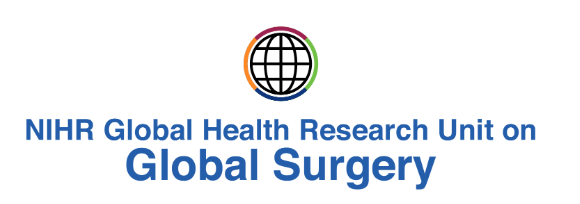Health Economics is the study of how we make health and healthcare choices with finite resources. With constraints on finances, workforce capacity, and infrastructure, it is important to allocate these limited resources in a manner to promote their efficient use and to make sure that we get the maximum benefit. The NIHR Global Health Research Unit on Global Surgery (GSU) has embedded health economics across its project portfolio to support decision making in limited-resource settings. The Unit has two dedicated health economists (Mark Monahan & Mwayi Kachapila) to help drive the research forward.
The ongoing health economics activities within the Unit include systematic reviews, economic modelling, cost studies, and economic evaluations alongside GSU trials.
Surgical Site Infection (SSI)
SSI is a key outcome measure in the Unit’s FALCON, CHEETAH, and PENGUIN trials. To understand the current cost literature of SSI and the methodological challenges in estimating the financial burden of SSI, we did a systematic review of the costs of SSI in low- and middle- income countries1.
We were also interested in the potential scale of the financial burden of SSI across income settings. A cost of illness study, using the GlobalSurg datasets to populate the model, will quantify the cost burden of SSI in appendectomy patients.
Primary data collection on the costs associated with SSI is currently being collected as part of a dedicated FALCON substudy. The Key resource use In Wound Infection (KIWI) substudy is collecting data across three continents amongst adult FALCON patients.
One of the Unit’s health economists (Mark Monahan) is doing a staff PhD on the economics of SSI in low- and middle- income countries. The PhD will look at both the costs and quality of life information of the SSI to help support decision making in these settings.
Pneumonia
Pneumonia is an important co-primary outcome of the PENGUIN study. Before the main trial commences, early economic modelling is underway to assess the preliminary cost-effectiveness of the trial interventions. Findings from the model will provide intuition of the main cost drivers and prioritize data collection efforts of important uncertain variables for the planned trial-based economic evaluation of PENGUIN.
Task-shifting
The lack of the surgical workforce is a major challenge in rural settings in Ghana. Task-shifting may provide a sustainable means of addressing unmet surgical need. The TIGER trial will assess task shifting between surgeons and non-surgeon physicians in inguinal hernia repair. Quantifying the costs and benefits of increasing access to surgery will be a significant aim of the health economics analysis.
Reference
1. Monahan M, Jowett S, Pinkney T, et al. Surgical site infection and costs in low-and middle-income countries: A systematic review of the economic burden. Plos one. 2020;15(6):e0232960.















Leave A Comment